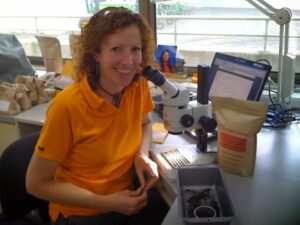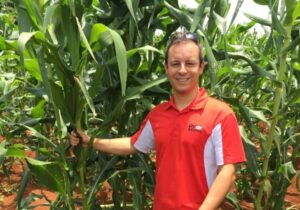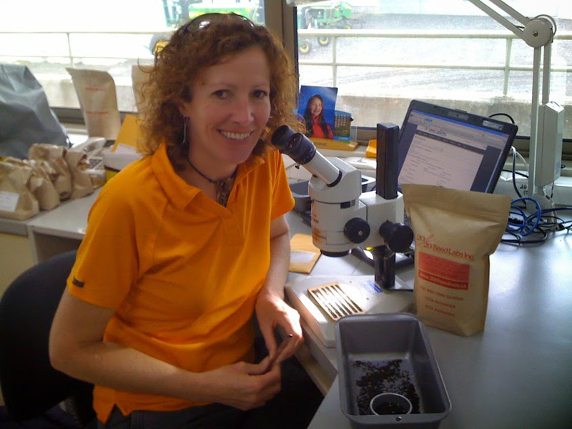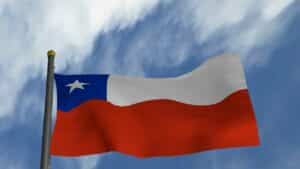When it comes to the agricultural relationship between North and South America, there’s something that binds the two continents together perhaps more tightly than anything else — growing seed during the off-season.
During North America’s comparatively cold winters, the climate in several South American countries — specifically Chile — is virtually the same as is found during a North American summer.
It’s during these months — typically September to March — that seed is produced in Chile and then shipped north to the United States and Canada where it is sold to farmers and grown during North America’s growing season.
It’s an annual tradition that has only intensified with the advent of canola, the dominant contra season oilseed crop grown in Chile.
Sarah Foster, president of Canada’s 20/20 Seed Labs, has spent years heading

to Chile on an almost annual basis to help operate 20/20’s Chilean operations, based at Curimapu Export in Chillán (located about 250 miles south of Santiago).
“Chile is, undoubtedly, critically important to Canada’s seed industry. It’s a long, thin country that covers a big chunk of South America’s latitude, which is why it’s so suited to growing crops in the contra season. You’ve got grapes, asparagus, nuts, cherries, berries, cereals, canola, soybean — the list goes on. It’s unbelievable how diverse that country is in terms of its production,” Foster says.
“But because the landmass is so limited, everything grown there during the contra season is a high value crop — everything. Nothing is grown in Chile that doesn’t have value.”
High Stakes
In other words, the stakes are high not just for North American seed companies, but for their Chilean partners, and every piece of available land in Chile is maximized for production.
Chile’s mountainous landscape limits the extent and intensity of its agriculture. As a result, the country’s arable land corresponds only to 2.62% of its total landmass — meaning every inch of farmland is highly valuable.
“The Chilean economy is heavily export dependent. The entire country — from government down to individual people — understand the work they’re doing for international businesses and the international community is vital to their long-term success,” says Jim Schweigert, president of the Wisconsin-based Gro Alliance.
Gro Alliance partners with Chile’s CIS Agro in its Chilean joint venture, CIS Alliance, to carry out contra season seed nursery projects in a range of species.
“There’s a lot of places around the world where you can potentially do contra season production, but to me, Chile has several big advantages. One is they have the right people with the right attitude,” Schweigert says.

That attitude comes from years of experience working with people from North America for export market purposes, Schweigert adds. The CIS Alliance nursery carries out customer seed breeding projects in corn and soybeans, along with 13 other crop species. Schweigert’s clients are based in Japan, Europe, the United States, Canada and beyond.
“It’s completely natural for them to understand the cultural nuances of whoever they’re working with. You might not find that anywhere else.”
COVID, Climate Change and Politics
Like any other crop-producing country, Chile has its challenges. The COVID-19 pandemic made contra season production a challenge due to health restrictions which impeded movement throughout the country.
One of biggest global effects of the pandemic was delay in shipping goods. ANPROS, Chile’s seed association, began to stress when the pandemic began that everything to do with contra season production in Chile had to be done in advance, including sending seed into the country to be multiplied.
ANPROS worked with authorities to implement different actions for speeding up every process regarding seed movement, according to Mario Schindler, executive director of ANPROS.
ANPROS and ANPROS-SAG (Chile’s inspection service) have collaborated with Chilean authorities to digitize more paperwork related to seed certification and phytosanitary certification, which made the process easier. Chile already has the e-Phyto (electronic phytosanitary certificate) system in place with the EU, United States, Argentina and other countries.
Also of concern is climate change. Ioana Stroe, Chile lab operations manager for 20/20 Seed Labs, says Chile’s climate is changing, and that means 20/20’s holdings in Chile may one day change. Cooler summers mean Chile is not immune to the climate change challenges faced in the rest of the world, she notes.
Depending on what happens, seed companies both in Canada and abroad may one day be looking to other nearby countries — like Argentina, Paraguay and Peru — for contra-season production, Stroe says.
“Their climate is very similar to Chile’s and benefits from two growing seasons; it could be an ideal place to do such production if it could no longer be done in Chile,” says Stroe.
Rick Rutherford, a Canadian seed grower who goes to Chile to consult for two Chilean seed companies, says Chile’s ability to adapt to change is helping it weather the challenges posed by climate change.
“Chile is a lot like Southern Alberta with a dry climate, and you irrigate as required. Because the plateau the country farms on is right next to the Andes, that’s where the snowpack is, and it’s used for irrigation,” says Rutherford.
“Right now, they’re enjoying the best snowpack they’ve had in years. For this next production season, things are looking really positive in terms of available water.”
While water availability can be a concern, Chilean seed companies are innovating with irrigation techniques that help them maximize available water sources.
“The central region of Chile is indeed experiencing less rain than we are accustomed to. We have been working to find fields with better water access,” says Nicolas Sahli, managing partner at CIS Agro based near Santiago.
“We have all our seed under pivot irrigation and also drip irrigation. That helps us to be very flexible and we can produce almost any kind of seed as a result.”
CIS Agro produces basic and commercial off-season seeds for crops such as corn, soybeans, beets, sunflower, canola, sweet corn, among others for clients around the world.

Despite the challenges around Covid and climate change, Chile enjoys a supportive business environment from a political perspective. The country’s national government is currently re-writing the Chilean constitution, and earlier this year, concerns arose among seed industry stakeholders that legislation might be introduced to ban the production of GM seed in the country.
Chile currently does not allow GMO crops to be grown by farmers for the national market but allows GM seed production for export.
In a recent news release, the ANPROS board of directors said it’s pleased that the final text for the proposed new constitution does not include anything that would directly affect seed production in Chile.
The news comes after months of effort by ANPROS to communicate the value of agricultural seed coexisting with ancestral seed, the news release notes.
“The fact that Chile is so adept at catering to export market needs is one major thing that has helped it develop into the kind of place that is today. It’s a testament to the value that GMO research and exports bring to Chile and its people,” Schweigert adds.
“Chile’s infrastructure has grown so much in a short time; it’s significantly better than it was when I first visited when I was in high school, and it continues to develop and advance. Chile is a great example to the rest of world when it comes to innovation and progress.”
—with files from Treena Hein












